National Iguana Awareness Day - Today is National Iguana Awareness Day! In the News - T
hey walk among us! Enjoy - Relax and enjoy these images and videos!
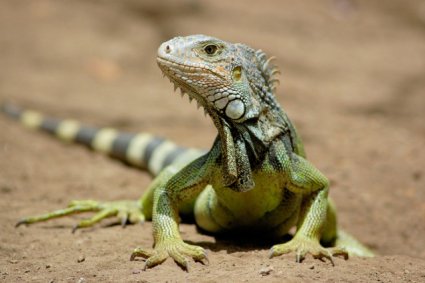
Iguanas are reptiles. They are cold-blooded animals. Their body temperature relies on their environment.
Different species of Iguanas live in different habitats. Some iguanas prefer life in tropical rainforests, some in the water, while others enjoy life in desert conditions.
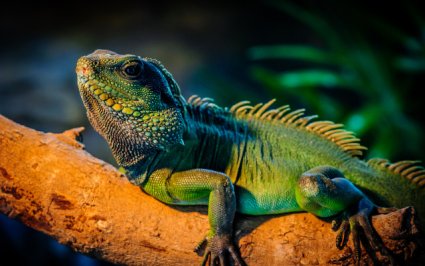
The Green iguana is very popular as a pet. Unfortunately, most pet iguanas die within the first year of adoption because they are not kept under required conditions. Some species, such as blue iguana, are endangered due to habitat loss.
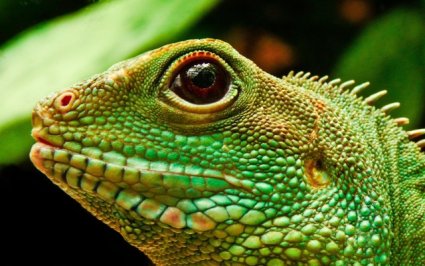
An Iguana can vary in size depending on the species. On average, they are usually 6 to 6.5 feet long, weighting 11 pounds. Iguanas are the largest lizards in America.
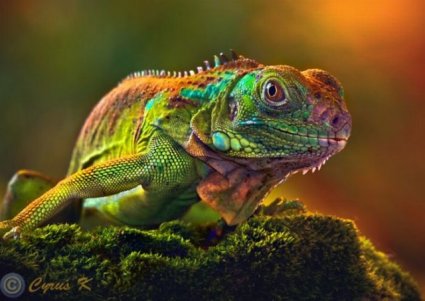
Iguanas have strong jaws with sharp teeth. They have very long and sharp tail that is usually half of the body length. This tail is used mainly for defence. In the case of danger, an iguana can detach a part of its tail to ensure fast escape from predator.
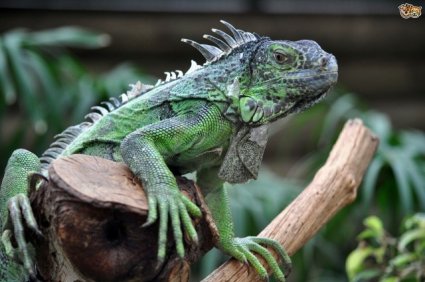
The Green iguana has a third eye. This retina-like structure is located on the top of the head, and it is connected with a pineal gland in the brain. Although it does not produce images like a regular eye, it reacts to the changes in light and it is used for detection of predators above the head.
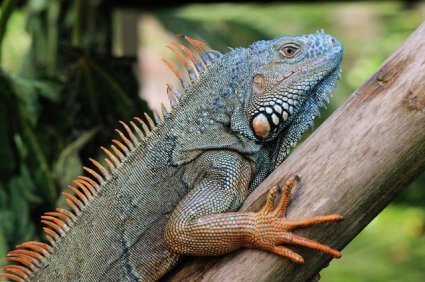
Some of the worst enemies of the iguana are predatory birds. An Iguana often freezes on the sound of hawk's whistle and unfortunately becomes even easier prey for catching.
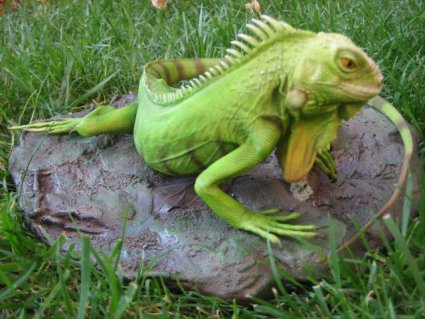
The species of iguanas that live in tropical rainforests spend the most of their life high in the treetops, often on the height of 40 to 50 feet. Although they are stable and safe on trees, they may occasionally fall. Iguana can survive fall from the height of 40 to 50 feet without injuries.
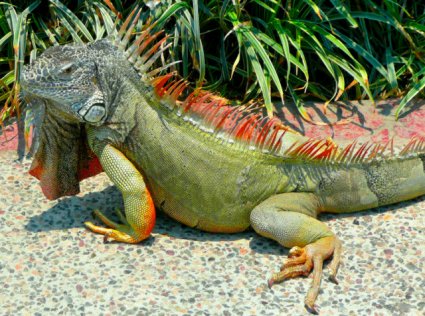
Iguanas are herbivores. They creatures feed on leaves, flowers, fruit, and growing shoots of 100 different species of plants.
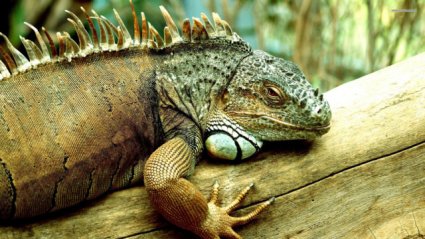
Iguanas are often found near the water. They are known as excellent swimmers.
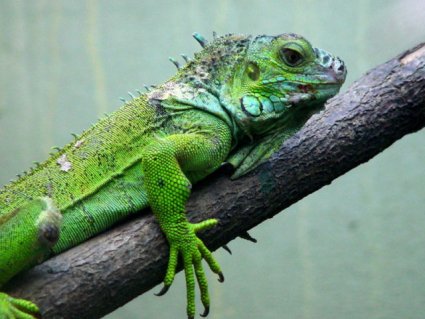
Iguana breathes using lungs. It can spend 28 minutes under the water without returning to the surface to breathe air.
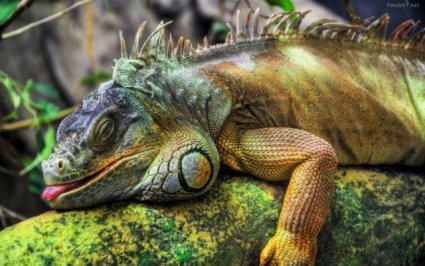
Some species of iguana are able to inflate themselves during the flood to become floatable.
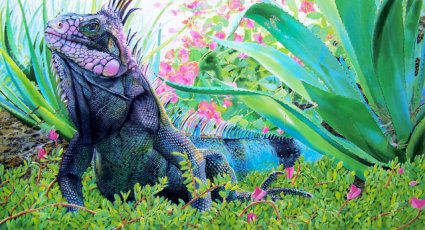
Mating season for most iguana species lasts from November to March or April. Females lay between 20 and 71 eggs in the nest. Iguanas do not provide parental protection and eggs are left on their own.
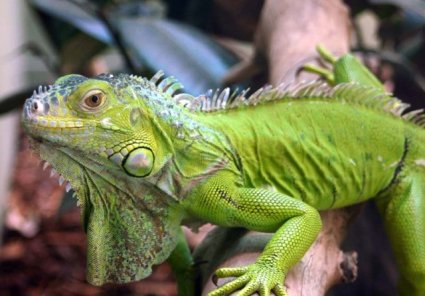
Eggs hatch after a period of 10 to 15 weeks. Young iguanas look like miniature adults. They stay together during the first year of their life in family groups. This offers protection against predators.
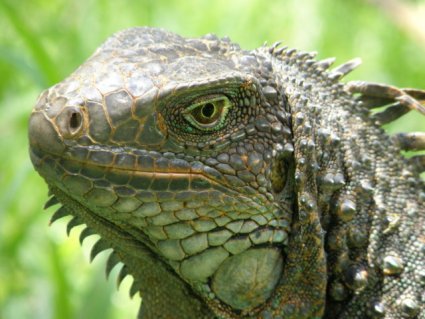
The average lifespan of iguanas is around 20 years in the wild. They live much shorter in captivity due to inappropriate care.
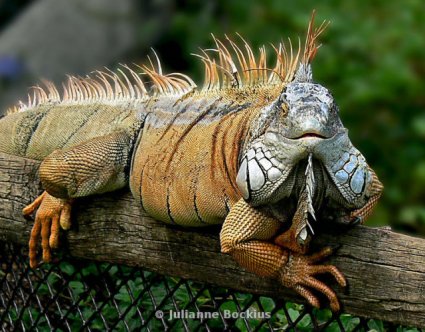
National Iguana Awareness Day (NIAD) was established in 1998 to discourage folks from viewing iguanas as "disposable pets." Because of the low cost and "mass market" appeal of these animals many are are purchased without the means or knowledge to care for them properly, dooming them to an early death after just a few years.
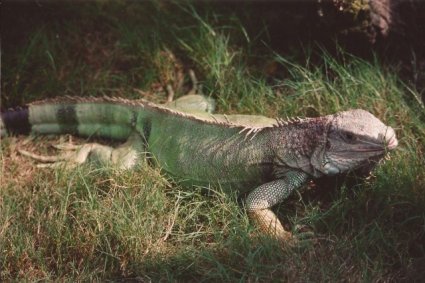
Iguanas are not suitable lizards for beginners. People purchase iguanas due to the small size, low price, and apparent low cost of feeding of juvenile iguanas. Though small and cute as juveniles, iguanas can grow to six feet in length and weigh some 20 pounds. They can be aggressive lizards.
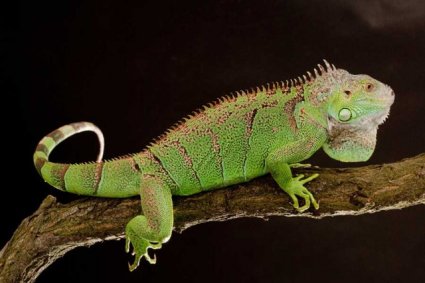
Although they will consume a wide variety of foods if offered, green iguanas are naturally herbivorous and require a precise ratio of minerals in their diet. Some of the most accessible staple vegetables, greens, and fruit seem to be: green apple, tomato, mangos, butternut squash, sweet potato, green beans, snap peas, okra, escarole, and collard greens.
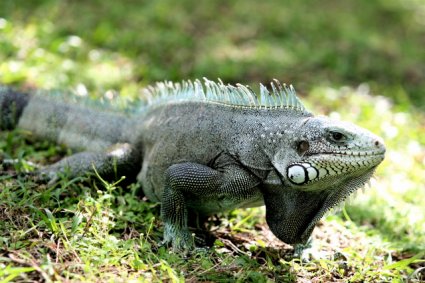
Green iguanas are tropical animals and will thrive only in temperatures of 75 to 95 degrees Fahrenheit. They require natural unfiltered sunlight or specialized light bulbs for UVA and UVA exposure. Without proper lighting their bodies cannot develop Vitamin D, and will develop metabolic bone disease which is fatal if not treated.
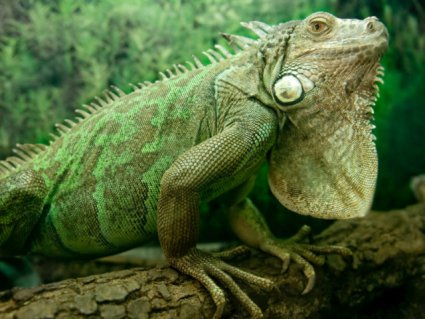
Leave green iguanas to the experts or take the time and spend the money to raise and house them properly.
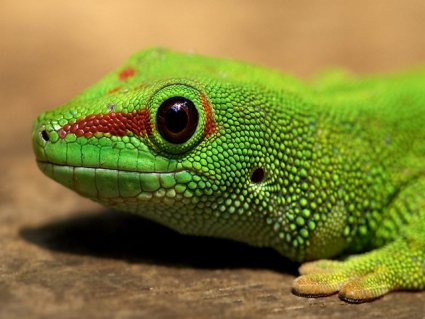







Monday, September 08, 2014
National Iguana Awareness Day, In the News, and Enjoy
Labels:
cats,
dogs,
headlines,
National Iguana Awareness Day,
news,
pets,
stupid criminals,
viral videos